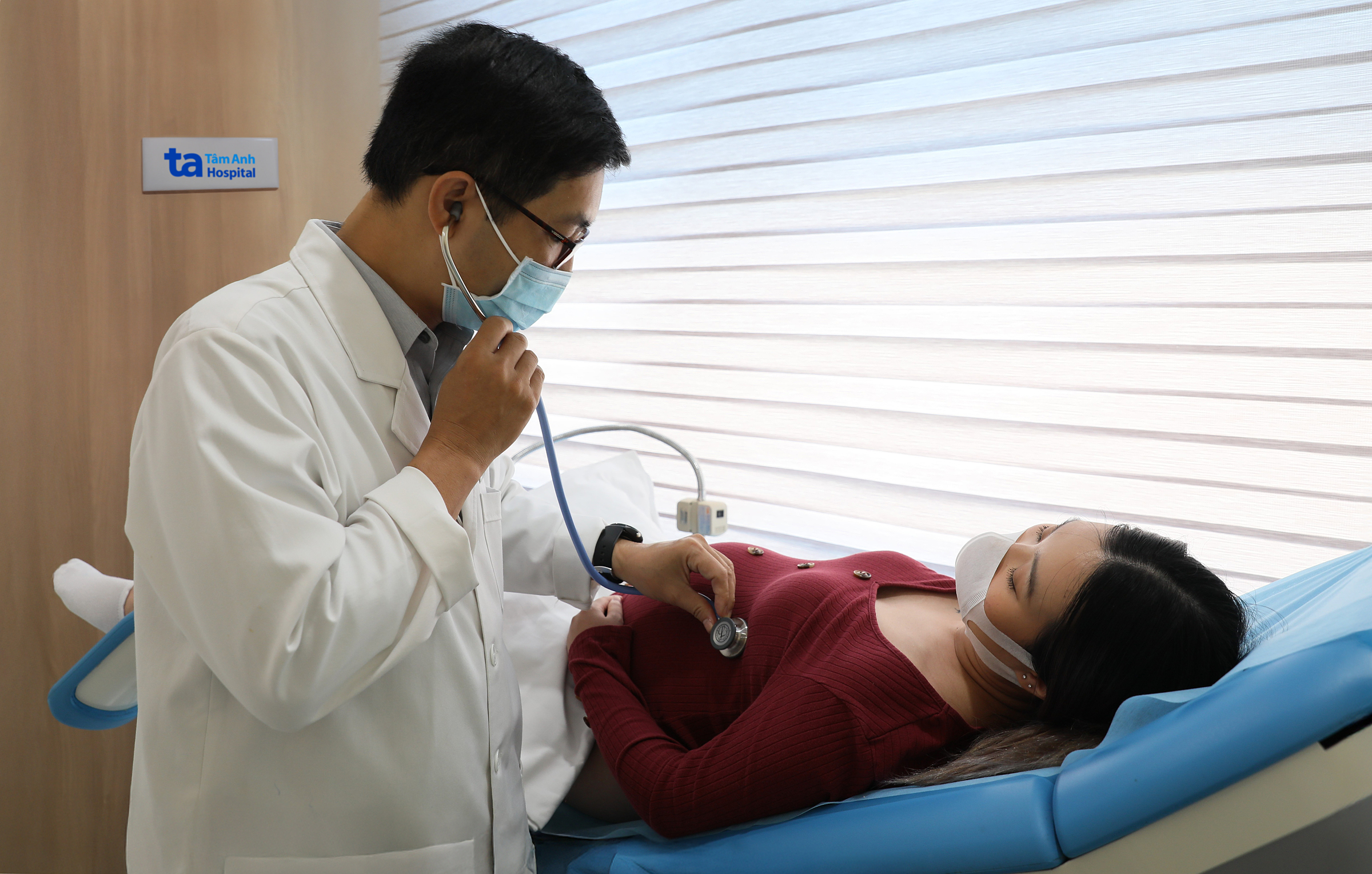High blood pressure is a common concern during pregnancy. Preeclampsia is a pregnancy-specific condition characterized by high blood pressure developing after 20 weeks of gestation. Expectant mothers with systolic blood pressure of 140 mmHg or higher and/or diastolic blood pressure of 90 mmHg or higher, possibly accompanied by protein in the urine due to kidney damage, may be diagnosed with preeclampsia.
Dr. Le Thanh Hung, Deputy Head of the Obstetrics Department at Tam Anh General Hospital's Obstetrics and Gynecology Center in Ho Chi Minh City, explains that preeclampsia can manifest with or without severe symptoms and typically precedes eclampsia. The prognosis varies depending on the severity and timing of the condition's onset.
Eclampsia, occurring before, during, or after delivery, can cause serious complications. The most dangerous is cerebral hemorrhage, which can lead to deep coma or stroke in the expectant or new mother. Preeclampsia can also result in blood clotting disorders, premature birth, slow fetal growth, and even death.
Gestational diabetes is another potential issue. Pregnant women are prone to blood sugar imbalances, and doctors often recommend blood glucose tests to screen for gestational diabetes. High blood sugar levels during pregnancy increase the risk of birth defects, stillbirth, and premature delivery. Babies often require Cesarean sections due to higher-than-normal birth weights, increasing their risk of childhood diabetes and birth trauma.
Expectant mothers should maintain a healthy diet and manage their weight to reduce the risk of gestational diabetes. If diagnosed, regular medical check-ups are essential to monitor both the mother's and baby's health.
 |
Dr. Hung examining a pregnant woman. Photo illustration: Tue Diem |
Urinary tract infections (UTIs) are more common during pregnancy. A weakened immune system and pressure from the uterus on the bladder can make it difficult to fully empty the bladder. Residual urine can become a source of infection when it refluxes into the urethra, creating a breeding ground for bacteria. Pregnancy hormones relax the ureter muscles, slowing urine flow and increasing the time it spends in the urinary tract. This allows bacteria to multiply, leading to UTIs, bladder infections, kidney infections, and kidney failure.
Anemia is also a concern. Pregnant women require more iron for their developing babies, increasing their susceptibility to iron deficiency anemia, particularly during the second trimester. According to Dr. Hung, early signs of anemia can be subtle, such as fatigue, weakness, and headaches, often mistaken for morning sickness. Some pregnant women experience pale mucous membranes, and severe anemia can lead to a rapid heart rate or low blood pressure. Undiagnosed and untreated anemia can increase the risk of premature birth, low birth weight, and postpartum infections.
Weight gain and obesity pose additional risks. Women who are overweight or obese before pregnancy are more likely to experience complications like gestational diabetes, preeclampsia, miscarriage, and stillbirth. These women require more frequent prenatal check-ups, experience longer recovery times, and are more susceptible to postpartum infections. While average weight gain during pregnancy is 8-12 kg, overweight or obese women may gain 20-25 kg, hindering mobility and increasing the risk of falls.
To prevent these common pregnancy complications, Dr. Hung advises expectant mothers to attend all scheduled prenatal appointments and manage their pregnancies carefully. Before pregnancy, it's crucial to manage any underlying health conditions and maintain a healthy weight. Pregnant women should be screened for conditions such as inherited anemia, pregnancy-related anemia, preeclampsia, and gestational diabetes.
Tue Diem
| Readers can submit questions about pregnancy and childbirth here for doctors to answer. |












